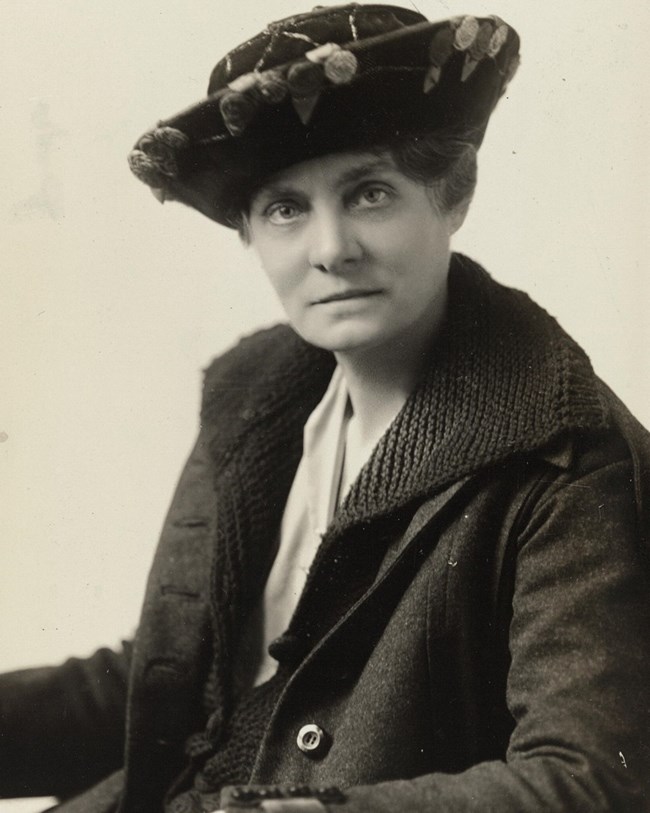Last updated: August 27, 2019
Article
North Carolina and the 19th Amendment

Women first organized and collectively fought for suffrage at the national level in July of 1848. Suffragists such as Elizabeth Cady Stanton and Lucretia Mott convened a meeting of over 300 people in Seneca Falls, New York. In the following decades, women marched, protested, lobbied, and even went to jail. By the 1870s, women pressured Congress to vote on an amendment that would recognize their suffrage rights. This amendment was sometimes known as the Susan B. Anthony amendment and became the 19th Amendment.
The amendment reads:
"The right of citizens of the United States to vote shall not be denied or abridged by the United States or by any state on account of sex."
After decades of arguments for and against women's suffrage, Congress finally passed the 19th Amendment in June 1919. After Congress passed the 19th Amendment, at least 36 states needed to vote in favor of it for it to become law. This process is called ratification.

Women’s suffrage had a lot of support in North Carolina. By the time the 19th Amendment reached the North Carolina state legislature in August of 1920, 35 other states had already ratified it.
Many Americans thought North Carolina would become the 36th and final state to ratify the amendment. But many of the state representatives could not agree on whether or not to recognize women's suffrage rights. Then news came that Tennessee had ratified the amendment, making it the 36th state to ratify the 19th Amendment. As a result, women’s suffrage became legal all across the country, even in North Carolina.
In 1971, fifty years later, North Carolina ratified the 19th Amendment.

North Carolina Places of Women's Suffrage: Battery Park Hotel
The second annual State Suffrage Convention was held on October 29, 1915 at the Battery Park Hotel in Asheville. The hotel is listed on the National Register of Historic Places. Convention organizers welcomed fellow suffragists from across the country. But the North Carolina Equal Suffrage League discourage more confrontational suffragists from attending, including Alice Paul. North Carolina women believed their mission would be undermined by suffragists like Paul as she was more direct in her tactics.

Battery Park Hotel is an important place in the story of ratification. It is listed on the National Register of Historic Places.
